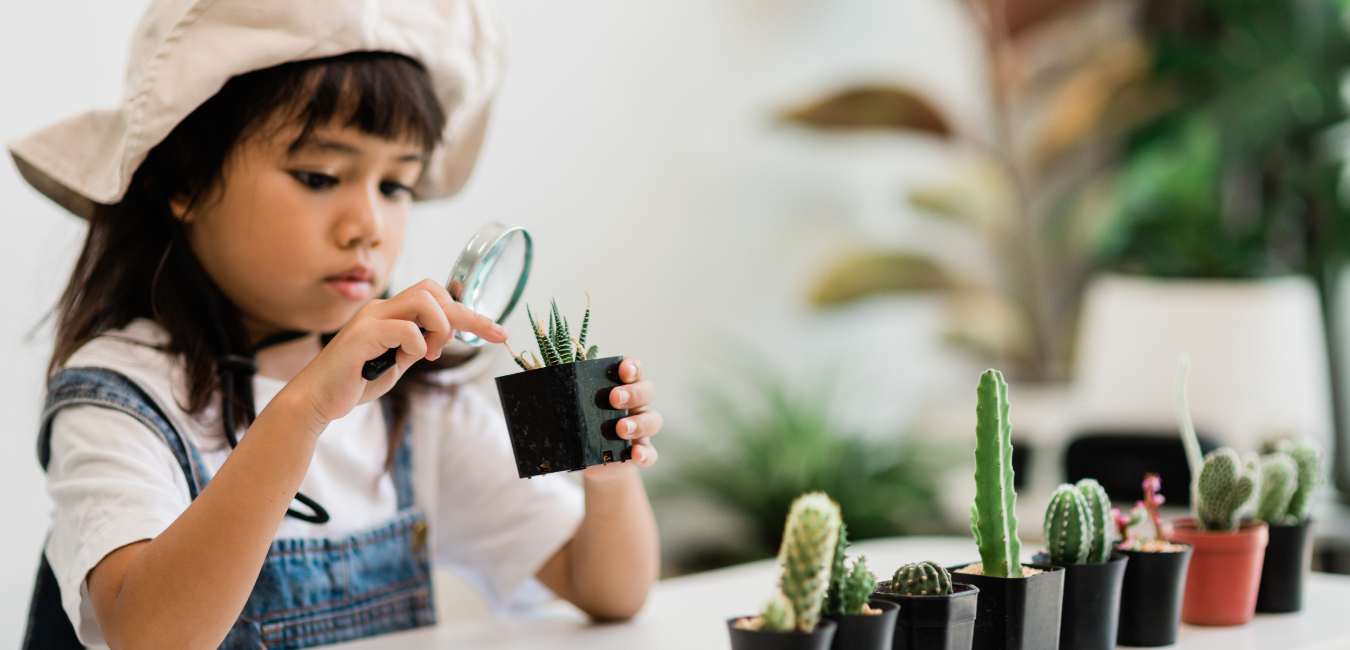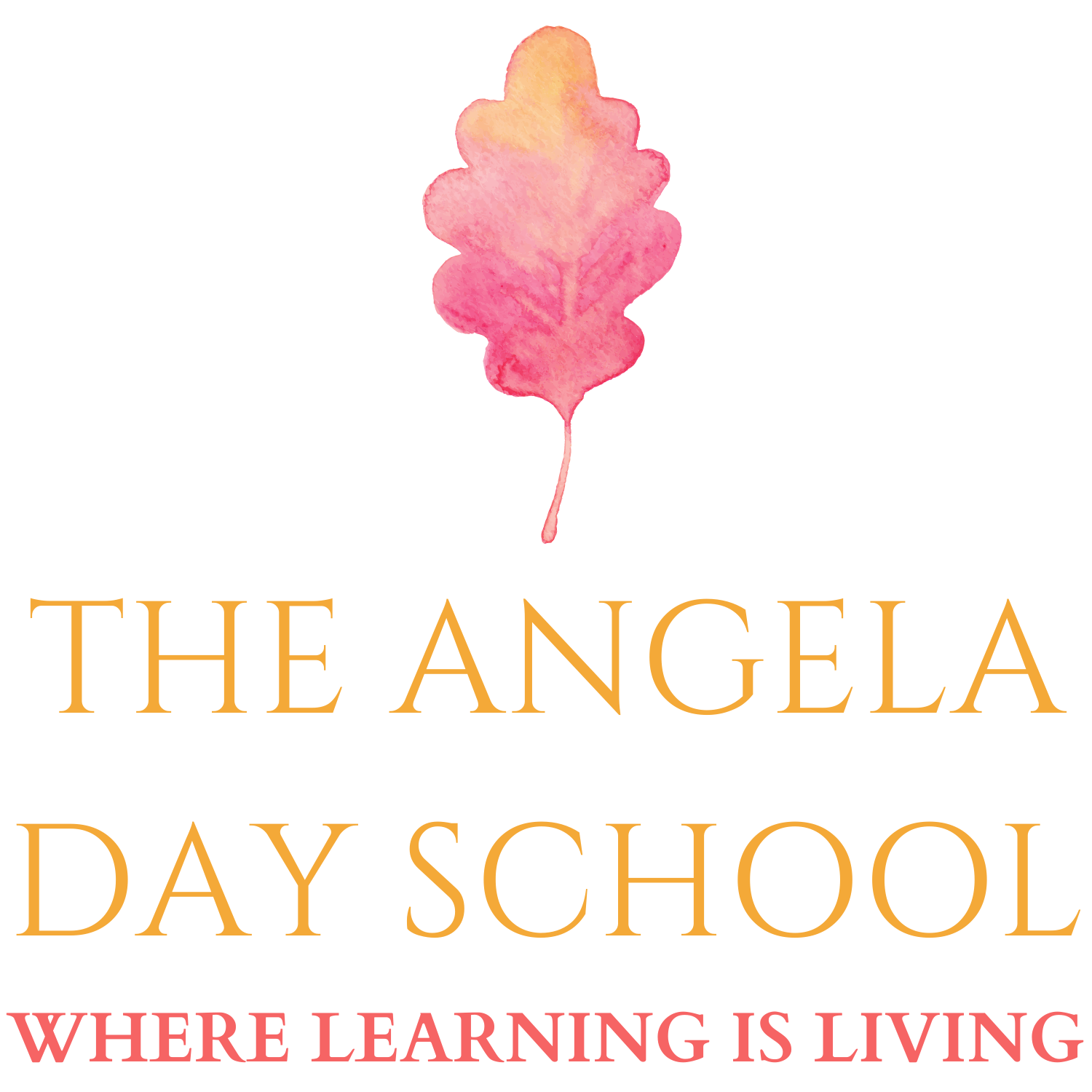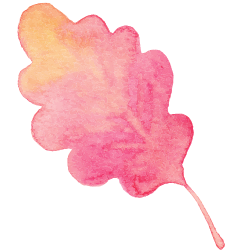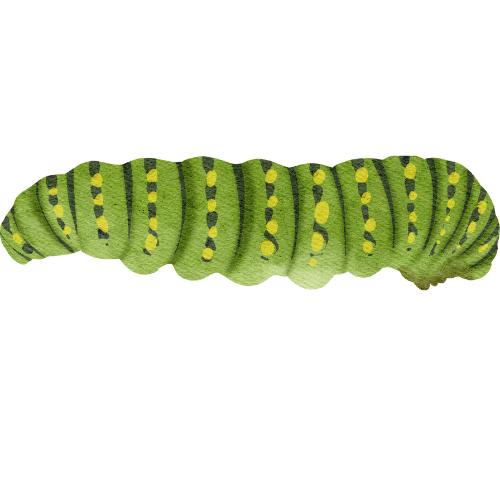
Angela’s Seeds
Early Childhood Learning Program: Preschool & Kindergarten
“Our task is to help children communicate with the world using all their potential strengths and languages, and to overcome any obstacle presented by our culture.”
- Loris Malaguzzi
Angela’s Seeds is a private nonprofit subsidiary of The Angela Day School, established to provide an accessible high quality early childhood education to underrepresented communities that’s reflective of the holistic progressive education provided at The Angela Day School and to and to support the overall mission and vision of The Angela Day School.
Angela’s Children’s House and Gardens offers a holistic learning environment blending the pedagogical traditions of Montessori, Reggio Emilia, and Waldorf-inspired education in a culturally sustaining Spanish bilingual learning environment. Our program utilizes a Forest and Urban Farm School model to support outdoor learning where children spend part of their day learning both indoors and outdoors. We partner with underrepresented families and communities to provide access to a high quality early learning environment that supports a rich and well rounded early child development for all children.
Angela’s Seeds will offer a mixed aged Preschool class serving children between ages 33 months and 5 years of age beginning in the fall of 2025. Seeds will partner with The Angela Day School in 2026 to offer kindergarten.
Who do We Serve?
Program Specifics
Angela's Seeds is our partner early learning program serving preschool and kindergarten families whose children are between 33 months and 6 years of age. The program will operate as a mixed age Preschool/Kinder class where children enrolled in the private preschool will learn alongside the kindergarten children enrolled in the public program. Specifically the program will include the following elements:
Two classrooms serving 16 - 26 children, led by a lead Guide and 2 - 3 assistants, with an average teacher student ratio of 1 to 7
Full day, 5 days a week program
Limited number of ½ day spots offered Monday - Friday*
Before Care and After Care from 7:15am - 5:30pm
All children are served Breakfast, Lunch, and two snacks which are included in the program’s tuition
*Option available for preschool age children

Our Curriculum
We utilize the pedagogical traditions of Montessori Education and interweave aspects of Reggio Emilia and Waldorf-inspired education to create a holistic and enriched learning environment for all children. The curriculum is antiracist, culturally sustaining and steeped in traditions reflective of the community, creating a daily and yearly sense of rhythm for children. As a Spanish bilingual program children learn in Spanish for the majority of the day. While the literacy curriculum uses a blended approach where children are introduced to letters and their sounds in both Spanish and English. As part of our forest school curriculum, children spend ½ their day outdoors learning.
Montessori as the Foundation
Our early childhood curriculum utilizes Montessori as the foundational approach to learning.
Spanish Bilingual Learning
Children learn each day in a Spanish language environment.
Forest School Outdoor Learning
Each afternoon, children venture outside for Forest School in one of the many nearby nature scapes.
The early learning program seamlessly blends Reggio Emilia and Waldorf-inspired pedagogies to provide a nurturing and open creative space for children to grow and develop.
Waldorf-Inspired & Reggio Emilia
Children learn in a culturally sustaining environment where they are guided to respect and value difference and challenge prejudice, particularly anti-blackness. The stories told and content explored is reflective of historically underrepresented communities and students in the classroom.
Culturally Sustaining & Anti-Racist.
THE 5 AREAS OF LEARNING
-
In practical life, children practice daily life skills by preparing snacks, caring for animals and plants, setting the table, cutting vegetables for Soup Friday, kneading and baking bread, washing/cleaning dishes, and getting dressed independently. Children also practice Grace and Courtesy as they come to understand and appreciate social interactions by being polite, saying please and thank you, patience, listening, and peacefully resolving conflicts. The practical life curriculum promotes independence, supports social/emotional development and helps develop fine and gross motor skills.
-
Using an exploratory approach to learning, children utilize hands on activities to learn about place values, identify numerals and their quantity, subtraction, addition, multiplication, and division. They explore patterns in the classroom and out in nature. Because children are exploring concepts through tactile exploration, they are not focused on memorizing mathematical facts but rather, like a mathematician, come to gain a firm understanding of the meaning behind patterns and the way numbers interact.
-
Through activities like sound games and learning rhymes, children come to acquire vocabulary and develop skills needed for writing and reading. Prior to learning how to read, children learn the sounds associated to with letters, how to recognize the sounds at the beginning, middle, and end of words, and how to form words and how to write. Children use hands on materials to help them learn letter sounds, how to combine sounds, building words, write sentences, and use a pencil. Through the full combination of these skills, they prepared to learn to read when ready.
-
Sensorial development is refined through the exploration of materials and natural surrounds each day. Children explore the world through their senses and develop a keen sense of understanding of their surroundings with the capacity to describe their experiences – rough, smooth, prickly, soft – through touch. Sensorial learning helps children classify their surroundings and create a sense of order. It lays the foundation for understanding how to classify, sort, and discriminate skills used in mathematics.
-
Children learn about cultural traditions and their community through an integrated curriculum of science, geography, art, history, and music. They have the opportunity to explore difference, challenge anti-black prejudices finding beauty in light and dark, and develop a deep sense of respect for all people and living things. Space is provided to engage in handwork, like knitting, sewing, and embroidering as a means of expression and as a means to honor the traditions of our ancestors.
Daily Rhythm
On a typical day, children are greeted upon arriving outside and offered the opportunity to partake in a light (warm in winter) breakfast and have time to play outdoors. When the time comes, your child's guide will escort the children inside for the first work block of the day. Over the course of the first work block your child will have the opportunity to engage with work materials that develop their fine motor, literacy, math, artistic, and science skills. Children will also practice practical life skills, tending to the classroom and important work as well as handwork. After the first work block, it's time to prepare for lunch. That day's bread bakers will set out rolls, the table setter will set the table, and lunch will be served where children sit together communally for a healthy meal.
After lunch and cleanup, some of the younger children who still nap will prepare to lie down for a short time while the remainder of the children prepare to go to Forest School. Napping children will be escorted to Forest School after their rest which will last approximately 1 hour. Forest School is time to explore in nature. Guides lead children in games, sing songs, and tell stories to further develop children's numeracy and literacy skills. Ample time is set aside for free exploration, artistic expression in nature, and a light snack. At the end of the day, parent's arrive for pickup meeting children at that day's designated Forest School pick up location. Children staying for after care are escorted back to the school for aftercare and to await the arrival of their parents.
Daily Schedule & Calendar

Our Teacher Leaders & Classroom Guides
Danisbel
Lead Guide
Dianna
Lead Guide
Jackie
Lead Guide
Preschool Enrollment Process
Our enrollment process begins with an initial student application form and a meeting with a Teacher Leader to learn more about our school model.
You can submit an enrollment interest application form here:
Meet with a Teacher Leader or School Director. We will contact you to set up an enrollment appointment with one of our Teacher Leaders.
Open Enrollment & Tuition
Our prekindergarten program has monthly tuition rate and operates on a 10 month schedule during the school year and 6 weeks over the summer. We have numerous options for financial assistance. If you need financial assistance or would like to learn more about our tuition rates, please contact us for more details and/or to learn more about opportunities for support and financial assistance options available to attend our school.
Preschool Tuition
Our Policies and Plans
Coming Soon!

Why Montessori?

Giving
Please consider giving a charitable gift to The Angela Day School’s early childhood education program, Angela’s Seeds. We believe access to a high quality early learning Montessori and enriched learning environment should be available to all families regardless of means. We appreciate any support you can offer our community and families we serve as we strive to provide equal access to a high quality Montessori education to all.
The Angela Day School is a 501(c)3 nonprofit.
All donations are tax deductible.

Our Location & Hours
4600 E 42nd Street
Minneapolis, MN 55406
Location
Contact us
Monday - Friday
8:15am - 3:30pm
Hours
Before Care - 7:15am - 8:15am
After Care - 3:30pm - 5:30pm
There are limited seats in before and after care
Before and After Care
All children are provided with a healthy breakfast, lunch and (2) snacks daily. We can accommodate most dietary needs.
Breakfast, Lunch & Snacks
Connect with Us

Program Highlight: The Block and Building Unit
“Children’s work is learning, and it is in [their] play…that the child works at [their] job.”
- Caroline Pratt
A core component of the early childhood curricula is the Blocks and Building Unit. The Blocks and Building Unit is an integral part of the learning program for kindergarteners and first graders. Inspired by the blocks program developed by Caroline Pratt. Children are lead, through structured play, to use building materials for the purpose of replicating and reproducing the structures they see in their community. This play allows children to integrate knowledge about the world with new information they learn while collaborating with their peers. Through collaboration children discuss plans as a group to construct buildings based on their research from trips to the library and in the community. This sometimes takes place as a whole group or in smaller groups. As children work with the materials, they develop number sense, pattern recognition, how to sort and classify, and spatial orientation. They learn symmetry, measurements, mapping, multiplication, fractions, geometry, physics. Check out the video below to see block play in action.
















